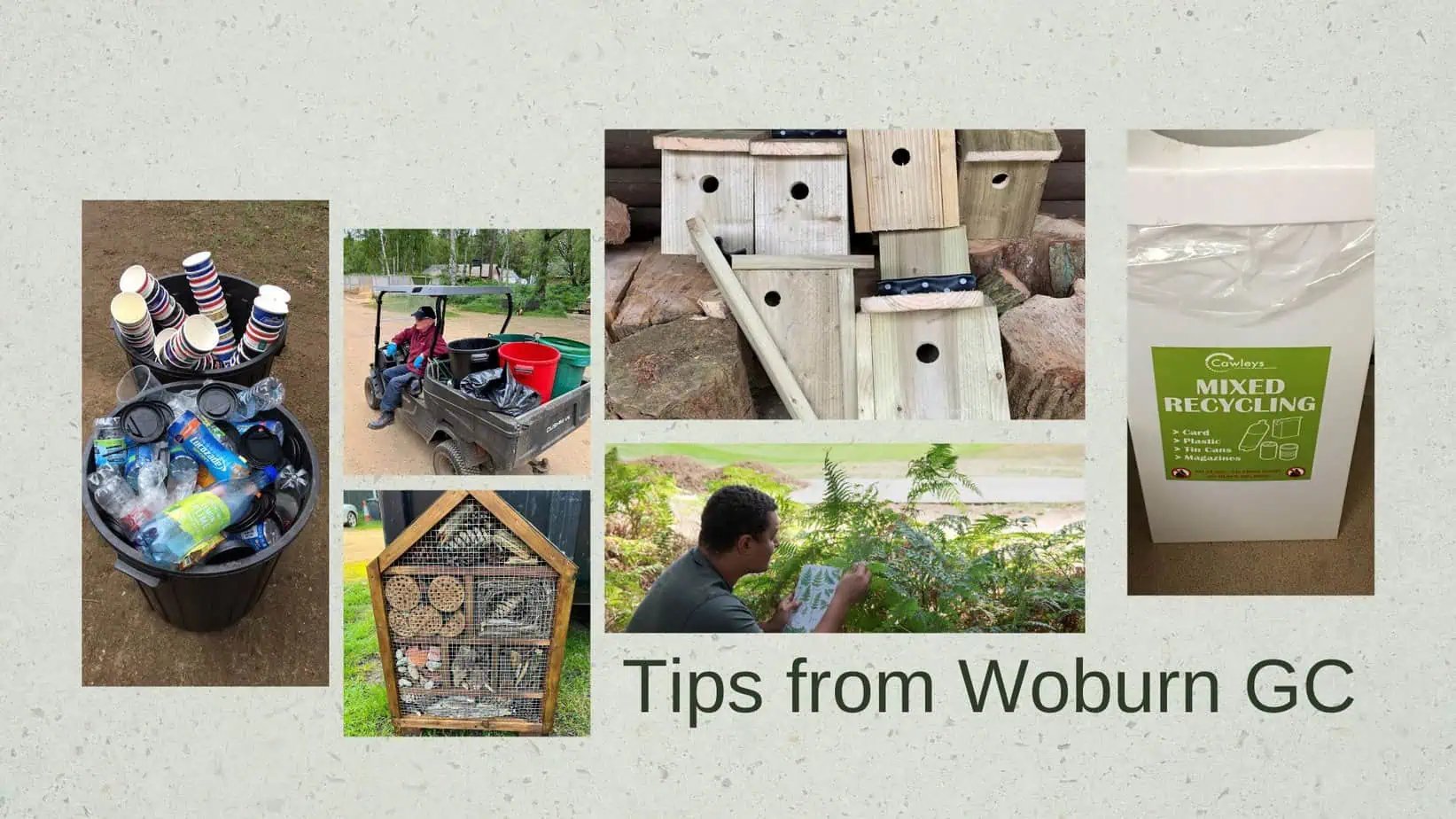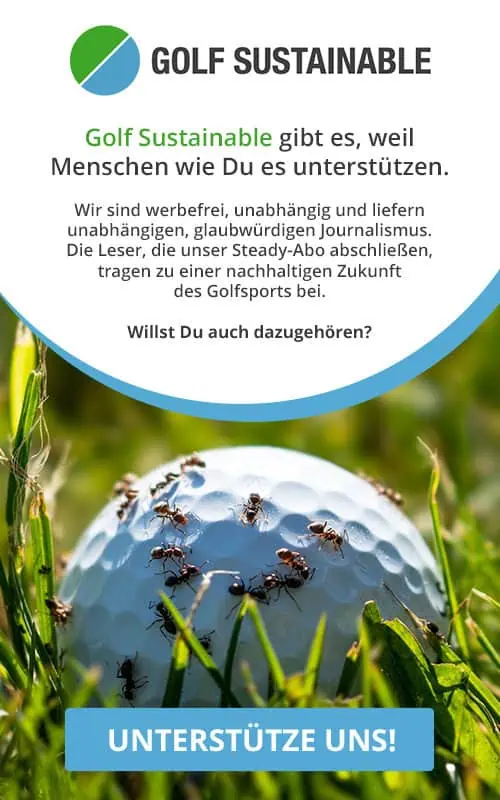Small effort – big effect: the best tips from Woburn GC
Sustainability yes – but please with an easy start. After all, most golf courses worldwide do not have too many staff members, nor do they have a fixed budget and a long-term concept for sustainability measures. Getting started is also easy – Gavin Sowden, Sustainability Manager at Woburn GC near London, is sure of that. The top facility, one of the leading golf clubs in the UK with an excellent international reputation, has made a name for itself in recent years as a driver of sustainable management in many areas. The concept is convincing due to its complexity, which also includes many small projects that cost little or nothing and only require one thing: Commitment to the cause.
- Bird boxes Over the winter, Greenkeepers with a keen interest in birds and wildlife have built numerous boxes from recycled pallets and terrace wood.
- Cooperation with local animal welfare groups: Woburn invited the Beds, Cambs & Norhants Wildlife Trust to carry out a fauna & flora survey on site. In the process, 38 plants were discovered and, interestingly, 20 different spider species were also recorded.
- Bug hotels: One of our talented Course Attendants collected materials from around the courses to build three bug hotels. Decking boards, waste cardboard, tree guards and pinecones were all used to construct the hotels.
- Waste reduction Consistent separation Course Attendant, who collects the waste in the garbage cans on the site and separates it into plastic, paper, cans and general waste.
- Recycling In 2023, Woburn generated 49 tons of waste, 41 % of which was recycled. Twenty percent of food waste was processed into biofertilizer, and 39 % was used to generate green electricity. None of the waste ends up in landfills anymore.
- Suppliers Woburn GC is asking its suppliers to reduce their packaging with all greenkeeper uniform supplied without packaging. Excess packaging impacts the amount of waste and could end up in landfill.
- Coffee grounds are collected and processed into collected and sent to be processed into Coffee Logs. Each log contains the grounds from around 20 cups of coffee. They burn 20% hotter than kiln-dried wood and generate less emissions than if the grounds were sent to anaerobic digestion.
- Saving energy All employees at the golf course have been asked to switch off the lights when they leave their rooms. Timers were installed on the hot water tanks and heaters in the staff areas. Compared to previous months, Woburn was able to save up to 15 %.
- Water saving Waterless urinals were installed in greenkeeper welfare areas. The previous urinals were using 15 litres of water every hour whilst flushing. Woburn sees a 30% saving on water within the maintenance facility
- Protecting the local environment Regular waste collections on the local streets around the club make an immediate and visible difference to the environment in which we live, work and play.
The costs are low, but it is still sometimes difficult to get started. “One of the biggest problems in implementing measures is the lack of knowledge and awareness that we need to address the issue,” summarizes Eddie Bullock, renowned consultant to golf clubs worldwide. “Basically, you need one person in the club to take responsibility and act as a coordinator and contact person. From then on, there are usually enough volunteers who are happy to take part. “In the end, the whole thing is primarily a question of communication.”









 Images: Sylvia Bothmer
Images: Sylvia Bothmer